Metabolism Boosting Foods: 20 Top Picks To Supercharge Fat Burn
Fixing your plate can go a long way in boosting your metabolism.
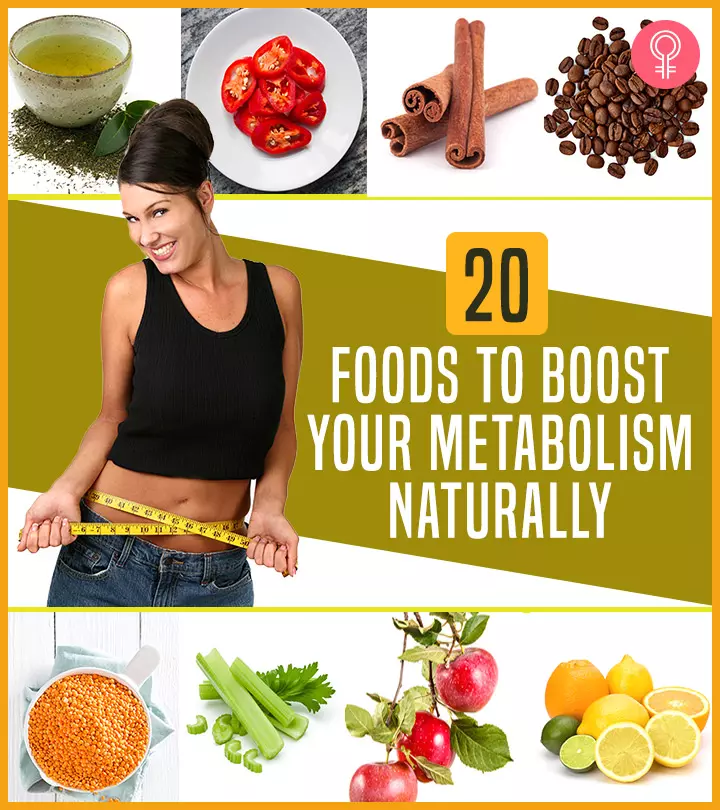
Image: StyleCraze
It’s okay to gain weight – especially when you have a desk job that does not allow you to move much. However, if you want to shed a few pounds, you can consume metabolism-boosting foods. A sedentary lifestyle slows down metabolism. As a result, you gain weight. But worry not – as you don’t have to starve or sweat for hours in the gym. There are certain foods that increase metabolism and burn fat. Continue reading to learn about the foods you need to consume to kick-start your metabolism.

In This Article
What Is Metabolism?
Metabolism is the complex chemical process of changing food into energy for the body to carry out essential bodily functions. Metabolism is split into two components (1):
- Catabolism: This process breaks down molecules (such as fatty acids) into simpler substances such as carbon dioxide, ammonia, and water. This releases energy for various bodily functions.
- Anabolism: This process involves using energy to make complex molecules such as proteins from simpler ones such as amino acids.
Metabolism plays a crucial role in maintaining various bodily functions. Factors like genetics, age, diet, and physical activity can influence your metabolism. Hence, a healthy balance between these two types of metabolic processes ensures a healthy body.
Check out the next section for foods to help you boost your metabolism.
Key Takeaways
- Green tea and water improve metabolism and help in weight loss.
- Chilies, cinnamon, citrus fruits, vegetables, and coffee improve metabolism.
- Work out regularly, have a healthy diet, and sleep adequately to improve your metabolism.
- Avoid late-night snacks, starvation, junk food, and stress.
20 Best Food To Boost Your Metabolism
1. Green Tea
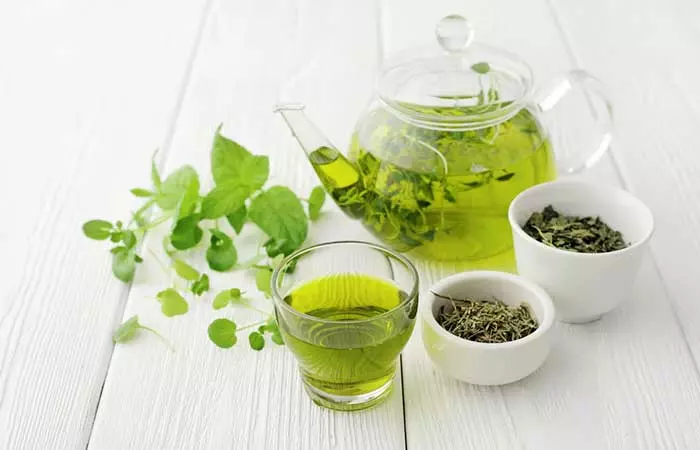
Green tea remains the unchallenged winner in the best natural weight loss drink category. When you make green tea the right way, the antioxidants in it help improve your health. The catechins in green tea – epigallocatechin gallate (EGCG), epicatechins (EC), and epigallocatechin (EGC) – are antioxidants (2). These help scavenge the harmful oxygen radicals and prevent oxidative damage to the cells, DNA, and cellular functions. When you prepare green tea the right way, the antioxidants help protect the cells, which function normally and keep your metabolism going.
Drink 3-4 cups of green tea per day to boost your metabolism, increase your energy levels, and lose weight naturally.
Denise Larkin, a fiction writer and lifestyle blogger, talks about the wondrous benefits of green tea she has experienced firsthand. “I class it as a weight loss tea because it can help you burn fat much quicker than normal but it also helps me with other ailments too. Drinking Green tea has quickened my metabolism as I have been losing weight weekly (i),” she says.
 Trivia
TriviaDue to its high popularity and visible detox effects, green tea’s market viability only keeps expanding. The global green tea market had been reported to be around USD 15 billion in 2025. The United States was the top importer of green tea that year, followed by China, as demonstrated in the graph below.

Global Leading Green Tea Importing Countries In 2025
Source: Statista2. Protein-rich Foods
Protein-rich foods like lean meat (chicken breast, fish, scallops, etc.), legumes and beans, tofu, mushroom, and soy are great for amping up your metabolism.
Incorporating fishes like mackerel and salmon is also recommended as they are rich in omega-3 fatty acids, which may increase metabolism levels in the body. They keep your hunger in control and prevent you from consuming too much food, junk food, in particular. And when you consume less junk food (or sugary/salty food), your body will stop storing fat, reduce inflammation and stress, and support your cells to carry out their functions.
Consume a source of lean protein with every meal to keep your metabolism firing. You can also take protein powders if you do not get to consume enough protein (0.8 g protein per kg body weight/day) from whole foods.
3. Chili
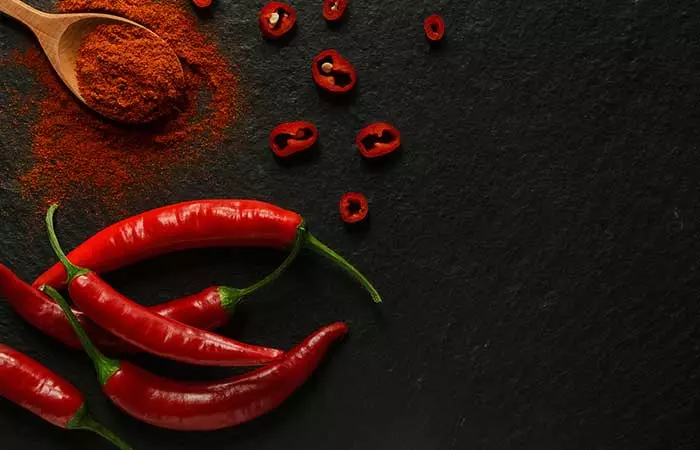
Believe it or not, chilies are recognized as one of the best superfoods for weight loss. Scientists found that they accelerate metabolic rate, increase thermogenesisi The dissipation of energy caused by heat production, especially in humans and animals, is called thermogenesis. (heat generation in the body to melt the fat), and improve energy expenditure. The main weight loss phytonutrient, capsaicin, increases energy expenditure of the fat tissues and also helps regulate insulin levels (3).
 Did You Know?
Did You Know?4. Fenugreek Seeds
If there’s one magic ingredient that can speed up your metabolism and help you lose fat, it is fenugreek. The Journal of Biomedicine and Biotechnology published a study conducted on high-fat-fed obese rats. Fenugreek seed extract helped improve metabolism by decreasing adipose tissue in the body and increasing digestive enzymes, antioxidants, blood glucose levels, and insulin sensitivity (4).
You can add fenugreek seeds to curries or detox water and notice great results in just a few weeks’ time.
5. Broccoli
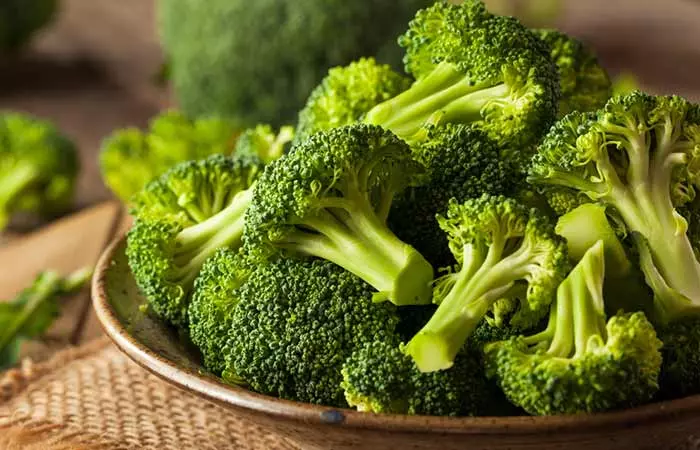
Talking about healthy foods, and broccoli not on the list? That just cannot happen! And there’s a good reason for it. This lush green vegetable, no matter how much you hate it, has innumerable health benefits. It is loaded with dietary fiber, vitamins, minerals, protein, and numerous phytonutrients that help fight various types of cancers and metabolic syndromes. Scientists have found that broccoli extract can help decrease blood sugar levels and improve abnormal metabolism (5).
Consume blanched broccoli in salads or vegetable quinoa or make broccoli soup for dinner or lunch. You can also have broccoli fritters instead of munching on a bag of chips.
6. Water
Staying hydrated is the key to good health. You must drink 3 liters of water per day. Increase the quantity if you work out regularly. Drinking adequate water will help flush out toxins from your colon, improve gut health, and help lower inflammation levels. German scientists have found that drinking 500 mL water increased the metabolic rate by a whopping 30% and increased energy expenditure by 100 kJ, emphasizing why water intake and maintaining hydration are truly important (6).
Drink a glass or two of water every hour. But make sure you do not go overboard and drink too much water as it can lead to water intoxication.
Denys Opria, a health, fitness, and lifestyle blogger, shares his discoveries on drinking 4 liters of water every day for a year. He found out in his research that drinking water increases metabolism by 25% for an hour. He explains, “A pleasant bonus was that a stable high metabolism may lead to losing weight. It wasn’t my initial goal, but I lost 4kg of fat during the year. 2kg in the first three months and 2kg in the following nine (ii).”
7. Yerba Mate Tea
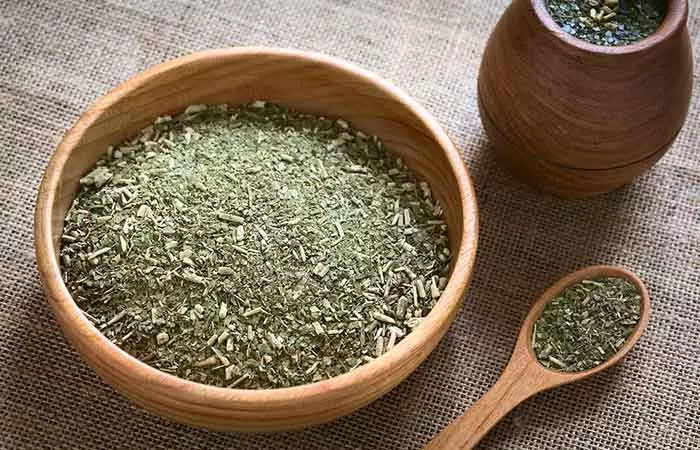
Delicious yerba mate tea is another popular metabolism boosting and weight loss promoting agent. Scientists found that consuming yerba mate 120 minutes before workout improved satiety levels and increased the energy levels, mood, and metabolism (7).
Drink yerba mate tea twice a day to kick-start your metabolism and lose a few extra pounds.
8. Cinnamon
Cinnamon is just not a spice you use to enhance the taste of cakes and pancakes. This unassuming spice is a natural weight loss agent that works by increasing the metabolic rate. Research shows that cinnamon helps increase insulin sensitivity, reduces blood pressure, and lowers blood sugar levels (8).
The best way to consume cinnamon is to buy Ceylon cinnamon, powder it, and store it. Use this powder in your teas, salads, and soups.
9. Lentils
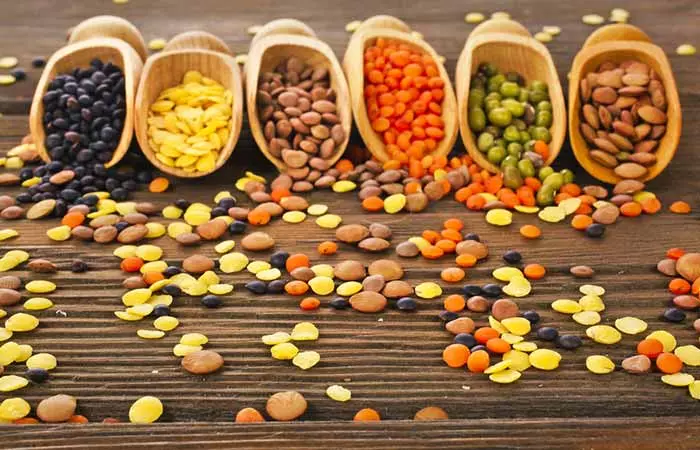
Lentils are a great plant protein source. They are naturally loaded with dietary fiber, minerals, and vitamins. In fact, lentils can help protect you from various diseases like obesity, diabetes, cardiovascular disease, and cancers (9). The protein and fiber keep your hunger pangs at bay, improve digestion, and flush out toxins from the colon. So, when your gut health is improved and hunger is reduced, your metabolism will increase naturally.
Consume boiled lentils or lentil soup for lunch or dinner.
10. Apple Cider Vinegar
Apple cider vinegar, in the recent past, has gained a lot of popularity as the most effective weight loss agent. It helps boost metabolism by balancing the internal pH, lowering serum triglyceridei The prominent constituent of human and vertebrate body fats, triglyceride is an ester. It is derived from glycerol and three fatty acids. levels, and reducing BMI value (10).
All you have to do is mix one teaspoon of apple cider vinegar in a glass of water and drink it first thing in the morning. Buy or make apple cider vinegar at home, and reap all the health benefits that it has to offer.
11. Whole Eggs
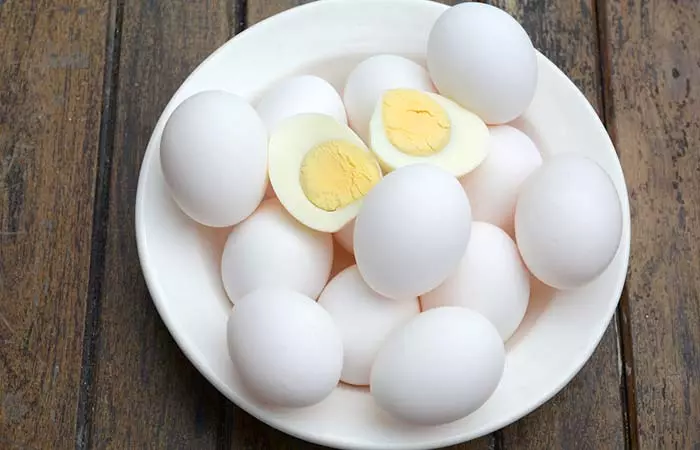
Many think that egg yolks are the reason their cholesterol levels are high. But here’s the truth. Your cholesterol levels increase when you consume too many trans fats and unhealthy fats from various food sources like fried foods, takeaways, pizza, burger, wafers, soda, packaged fruit juices, etc. Egg yolks are rich in water-soluble (B and C) and fat-soluble vitamins (A, E, D, K), which are needed for proper growth and body function, including metabolism (11), (12). Eggs are also rich in proteins, which include essential amino acids that help improve stamina and exercise performance (13).
Consuming 1-2 whole eggs per day will do you more good than harm. So, the next time, think about the benefits you are losing before tossing the egg yolk away.
12. Celery
Celery is touted as the best negative calorie food. This means that you burn more calories to digest and metabolize celery than the actual calories present in it. When you consume celery, your cells have to work harder to break it down, which results in peaking of your metabolic rate. Scientists also found that celery extract had a lipid-lowering effect on Wistar rats (14).
Consume celery in soup, salad, smoothies, or have it as a healthy snack.
13. Garlic
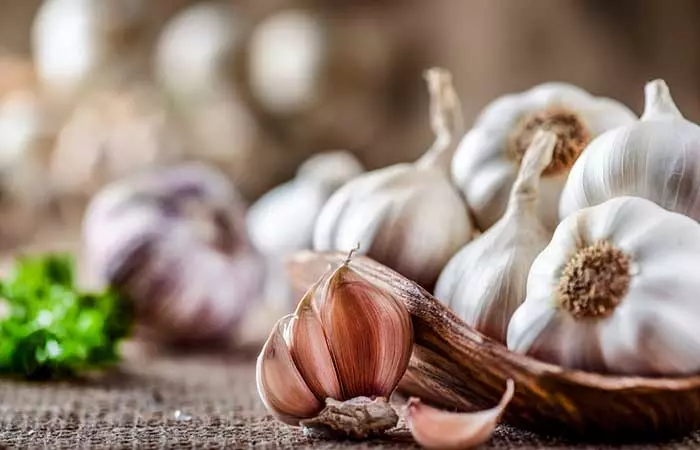
Garlic is the queen of herb spices, according to me. It not only enhances the taste of any dish but also has many health benefits. Allicin is an active biocompound found in garlic that helps fight many types of cancer, reduces blood pressure, and protects you from common cold. Research shows that garlic helps inhibit the fat synthesis genes and increases thermogenesis (15). It also helps improve insulin sensitivity (16).
Add garlic to your salad dressing, soup, grilled chicken/fish, sautéed mushrooms, or lentils.
14. Apple
Apples are good for our health – we’ve all heard the adage a million times. And it is true. Apples are rich in antioxidants, dietary fiber, and flavonoids that help reduce inflammation, improve metabolic rate, lower LDL (bad) cholesterol, fight cancer, and improve lipidi Lipids are a large group of molecules that occur naturally, such as fats, sterols, waxes, and diglycerides. profile and insulin sensitivity (17).
Have one apple a day to lose weight fast and naturally without overworking at the gym or depriving yourself of good food.
15. Full-Fat Yogurt
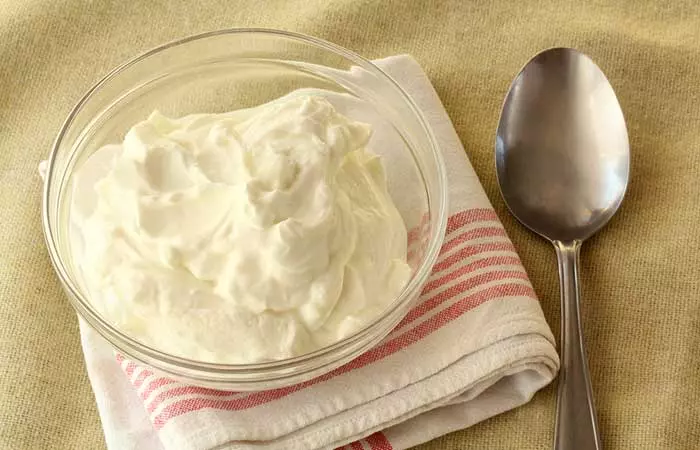
Full-fat yogurt, a good probiotic, is what you should buy the next time you are at the supermarket. Low-fat milk and yogurt do not contain the essential nutrients and can make you feel hungry sooner as compared to full-fat milk/yogurt. Yogurt is a rich source of good gut bacteria, which aids better digestion. It also helps control your appetite and regulates blood glucose levels (18). As a result, your cells will function at optimum levels, giving your metabolism the much-needed boost.
Add yogurt to your breakfast bowl, smoothies, or salad dressings.
16. Coffee
Coffee is a great beverage to improve your metabolism. This dark, aromatic, and mood-boosting drink aids fat oxidation by increasing your body’s metabolic rate. In fact, scientists found that caffeinated coffee works better in obese individuals (19). Decaffeinated coffee is not as effective.
Drink two cups of black coffee per day. But avoid it if you cannot tolerate caffeine.
17. Mustard
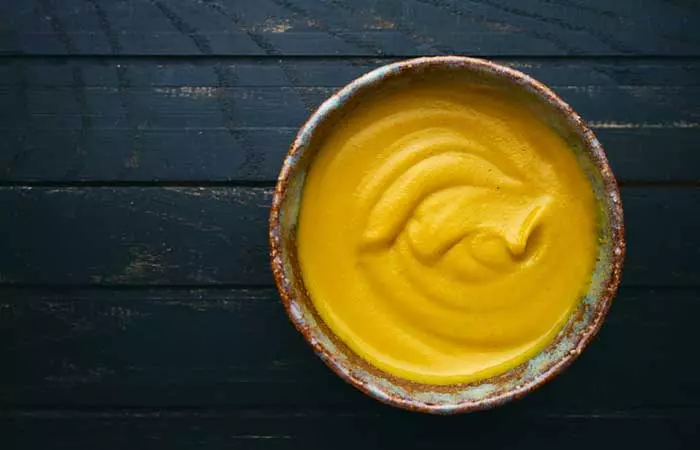
Be it hot dogs, sandwiches, or salads, mustard is a must! This flavor-rich spice/condiment is a good source of healthy fats and helps to boost metabolism by accelerating fat breakdown.
You can also buy mustard powder and add it to curries. But make sure not to add too much of it as it can make your food taste bitter.
18. Goji Berries And Strawberries
Goji berries and strawberries are loaded with nutrients that help balance your body’s pH, induce thermogenesis, flush out toxins, and increase fat oxidation. Both these berries are considered to be the best foods for those trying to lose weight by boosting metabolism (20).
Add these to your breakfasts, smoothies, or eat them as a snack. But do not go overboard and over consume them as that can lead to a spike in glucose levels.
19. Citrus Fruits
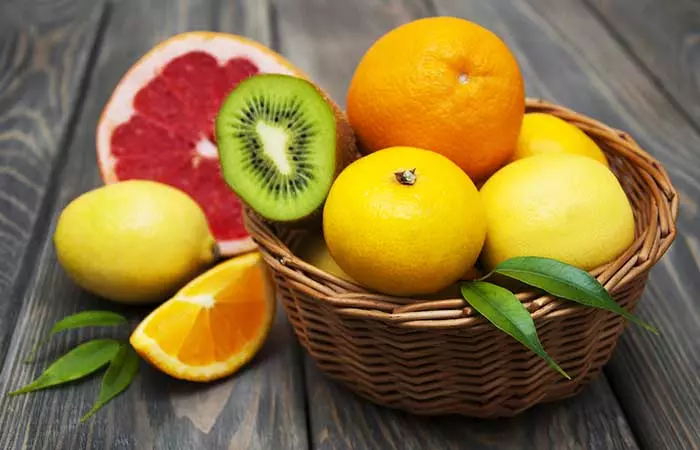
Has anyone ever told you to drink a glass of warm water with the juice of a whole lime or half a lemon? Those who do it regularly know that this has an immense benefit for their overall health. Lime is a good source of vitamin C, a natural antioxidant that boosts your immunity and activates the basic cell functions (21). In fact, all citrus fruits like lemon, kiwi, grapefruit, tangerine, clementine, and pineapple are good for boosting your metabolism and shedding the fat (22).
20. Herbs
Most herbs used in foods, like cilantro, oregano, rosemary, thyme, dill, and fennel, are loaded with antioxidants. Antioxidants help improve the metabolic rate by nullifying the harmful effects of free oxygen radicals. They may also help you lose weight. The popular herbs for weight loss are cinnamon, garlic, and fenugreek. So, when it comes to adding a lot of dried or fresh herbs to your food, don’t be shy. They add the perfect aroma that will soothe you and help you become slim again.
These were the 20 metabolism-boosting foods that you should include in your diet. But if you want to know how to lose weight in a week, you will also need to make some lifestyle changes. Here’s a checklist.
Other Things You Should You Do To Boost Metabolism
- Drink 500 mL of water first thing in the morning.
- Or drink a glass of fenugreek soaked water or lime juice water first thing in the morning.
- Workout regularly.
- Take less stress.
- Do not starve yourself. Eat every 2-3 hours.
- Eat healthy, even when you eat out.
- Learn to say NO to foods that will make you step back in your weight loss journey.
- Build your social support by interacting with people with similar fitness goals.
- Sleep for 7 hours.
- No late night snacking.
Infographic: Top 8 Foods To Boost Metabolism
Physical inactivity or a sedentary lifestyle can lead to reduced metabolism and weight gain. However, you can control this with positive changes in your diet. Check out the infographic below for the top 8 metabolism-boosting foods you should include in your diet.
Some thing wrong with infographic shortcode. please verify shortcode syntaxA healthy and fit lifestyle begins with a balanced diet. This includes following healthy eating habits and consuming a wide variety of foods in balanced amounts. Individuals with a sedentary lifestyle or those prone to put on weight quickly may especially benefit by adding metabolism-boosting foods to their diet. These include green tea, eggs, whole grains, nuts, seeds, apple cider vinegar, and chilis. These foods may slow down fat formation and help burn calories or boost metabolism through their high antioxidant content. In addition, drink ample water and follow a regular exercise regimen to achieve the best results.
Frequently Asked Questions
What are the signs of a slow metabolism?
Persistent fatigue and lethargy, sugar cravings, unexplained weight gain, brittle and dry hair and nails, dry skin, difficulty losing weight, constipation, and continuous headaches are some signs of a slow metabolism.
How can I kick start my metabolism?
Some ways to kickstart your metabolism include eating protein rich foods, staying hydrated, eating chili peppers and other spicy food, lifting weights, doing high intensity interval training, and drinking green tea.
Can I consume metabolism-boosting foods in any form, such as raw, cooked, or as supplements?
Yes, while taking supplements is fine, it is better to consume metabolism-boosting foods in their raw or cooked form. For instance, apples can be eaten raw, whereas eggs would require proper cooking.
How often should I eat metabolism-boosting foods to see the effects on my metabolism?
You can consume them every 3 to 4 hours as a snack or a proper meal.
Illustration: Best Metabolism Boosting Foods You Must Add To Your Diet

Image: Stable Diffusion/StyleCraze Design Team
Transform your body with these metabolism-boosting foods! Learn how to make healthy meals that will help you reach your goals. Watch the video to discover more.
Personal Experience: Sources
StyleCraze's articles are interwoven with authentic personal narratives that provide depth and resonance to our content. Below are the sources of the personal accounts referenced in this article.
i. How Green Tea Helps Me Feel Betterhttps://medium.com/skinny-is-best/how-green-tea-helps-me-feel-better-3c65c2b0e291
ii. I Drank 4 Liters of Water Daily for 365 Days
https://medium.com/in-fitness-and-in-health/i-drank-4-liters-of-water-for-365-days-6fabefdeff5d
References
Articles on StyleCraze are backed by verified information from peer-reviewed and academic research papers, reputed organizations, research institutions, and medical associations to ensure accuracy and relevance. Read our editorial policy to learn more.
- Metabolism
https://www.ncbi.nlm.nih.gov/pmc/articles/PMC7545035/ - Antioxidants in Sport Nutrition.
https://www.ncbi.nlm.nih.gov/books/NBK299060/ - Chili pepper as a body weight-loss food
https://pubmed.ncbi.nlm.nih.gov/27899046/ - Fenugreek seed extract inhibit fat accumulation and ameliorates dyslipidemia in high fat diet-induced obese rats
https://www.ncbi.nlm.nih.gov/pmc/articles/PMC4020548/ - Protective effects of broccoli (Brassica oleracea) against oxidative damage in vitro and in vivo
https://pubmed.ncbi.nlm.nih.gov/17330507/ - Water-induced thermogenesis
https://pubmed.ncbi.nlm.nih.gov/14671205/ - Yerba Maté (Ilex paraguariensis) Metabolic, Satiety, and Mood State Effects at Rest and during Prolonged Exercise
https://www.ncbi.nlm.nih.gov/pmc/articles/PMC5579675/ - Cinnamon effects on metabolic syndrome: a review based on its mechanisms
https://www.ncbi.nlm.nih.gov/pmc/articles/PMC5220230/ - Polyphenol-rich lentils and their health promoting effects
https://www.ncbi.nlm.nih.gov/pmc/articles/PMC5713359/ - Vinegar intake reduces body weight, body fat mass, and serum triglyceride levels in obese Japanese subjects
https://pubmed.ncbi.nlm.nih.gov/19661687/ - Vitamin D deficiency is the cause of common obesity
https://pubmed.ncbi.nlm.nih.gov/19054627/ - Whole egg consumption improves lipoprotein profiles and insulin sensitivity to a greater extent than yolk-free egg substitute in individuals with metabolic syndrome
https://pubmed.ncbi.nlm.nih.gov/23021013/ - Consumption of whole eggs promotes greater stimulation of postexercise muscle protein synthesis than consumption of isonitrogenous amounts of egg whites in young men
https://pubmed.ncbi.nlm.nih.gov/28978542/ - Effects of aqueous celery (Apium graveolens) extract on lipid parameters of rats fed a high fat diet
https://pubmed.ncbi.nlm.nih.gov/7700983/ - Reduction of body weight by dietary garlic is associated with an increase in uncoupling protein mRNA expression and activation of AMP-activated protein kinase in diet-induced obese mice
https://pubmed.ncbi.nlm.nih.gov/21918057/ - Garlic improves insulin sensitivity and associated metabolic syndromes in fructose fed rats
https://www.ncbi.nlm.nih.gov/pmc/articles/PMC3168415/ - Apple peel supplemented diet reduces parameters of metabolic syndrome and atherogenic progression in apoe−/− mice
https://www.ncbi.nlm.nih.gov/pmc/articles/PMC4449944/ - The potential role of yogurt in weight management and prevention of type 2 diabetes
https://pubmed.ncbi.nlm.nih.gov/27332081/ - Caffeine and coffee: their influence on metabolic rate and substrate utilization in normal weight and obese individuals
https://pubmed.ncbi.nlm.nih.gov/7369170/ - Lycium barbarum reduces abdominal fat and improves lipid profile and antioxidant status in patients with metabolic syndrome
https://www.ncbi.nlm.nih.gov/pmc/articles/PMC5480053/ - Lemon polyphenols suppress diet-induced obesity by up-regulation of mrna levels of the enzymes involved in β-oxidation in mouse white adipose tissue
https://www.ncbi.nlm.nih.gov/pmc/articles/PMC2581754/ - Citrange fruit extracts alleviate obesity-associated metabolic disorder in high-fat diet-induced obese c57bl/6 mouse
https://www.ncbi.nlm.nih.gov/pmc/articles/PMC3876074/
Read full bio of Dr. Jill Carnahan
Read full bio of Ravi Teja Tadimalla
Read full bio of Aparna Mallampalli







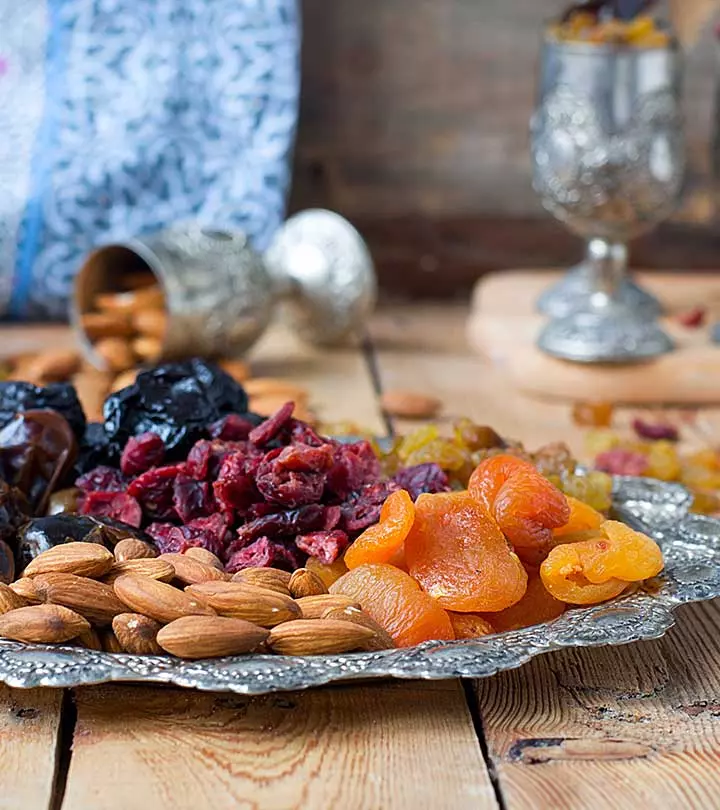


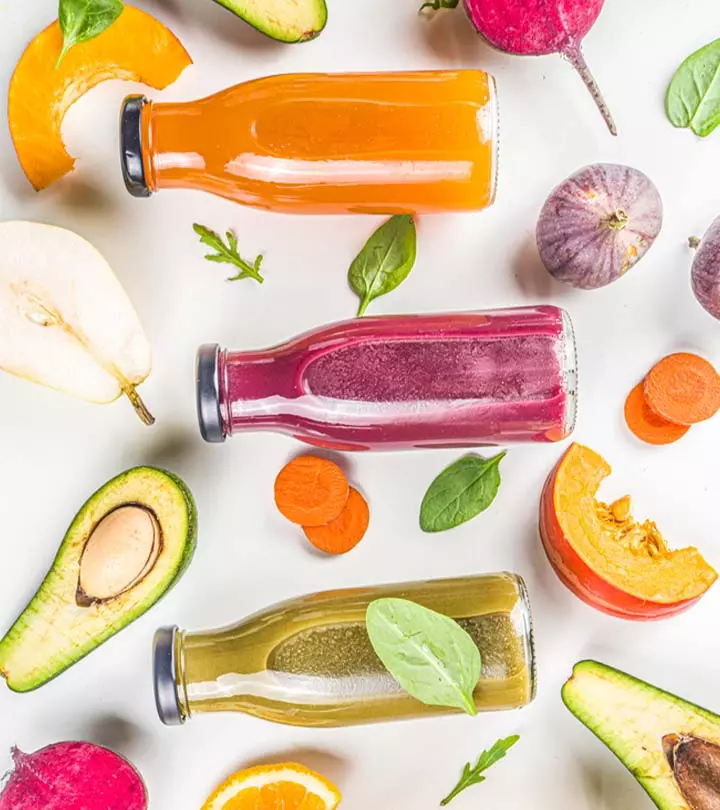

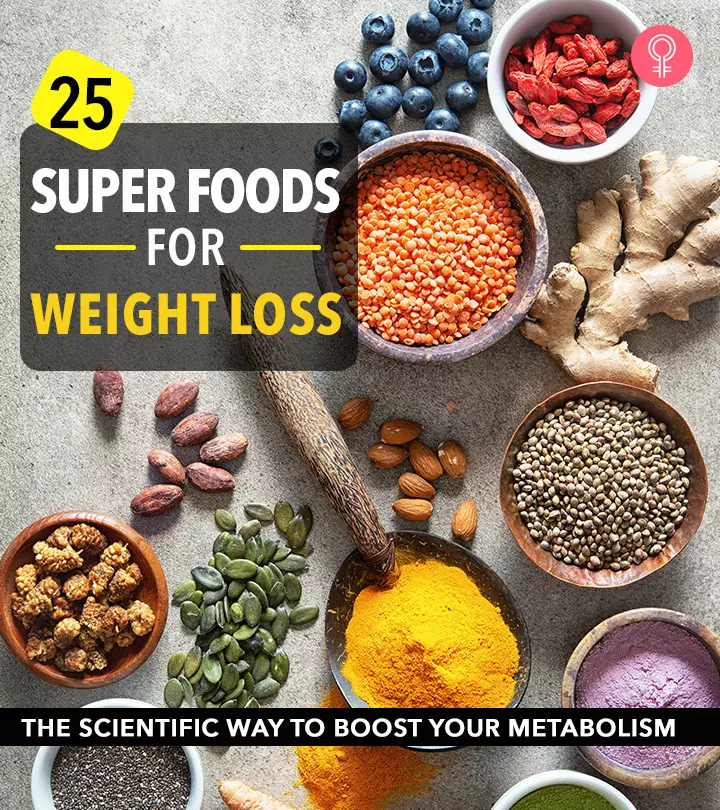

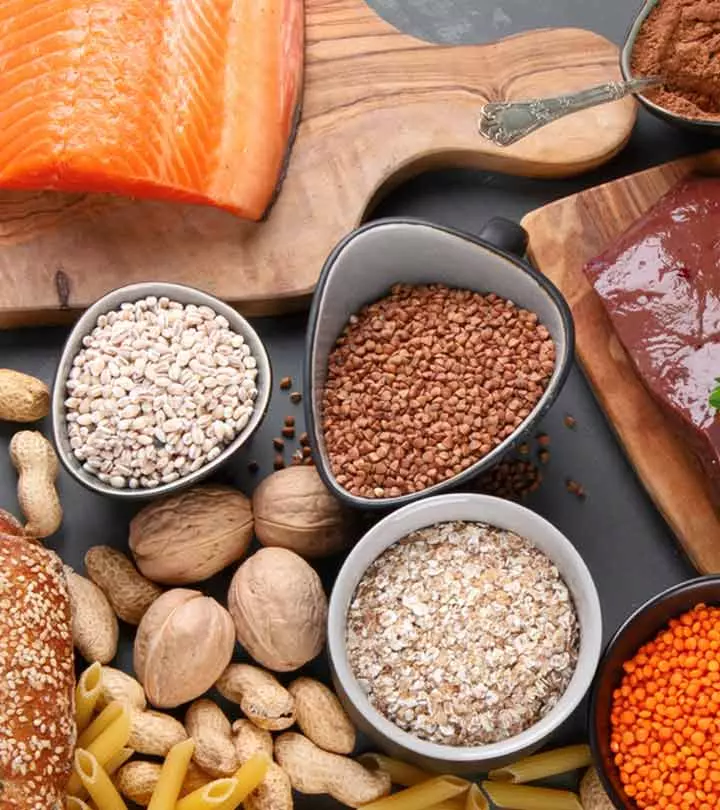
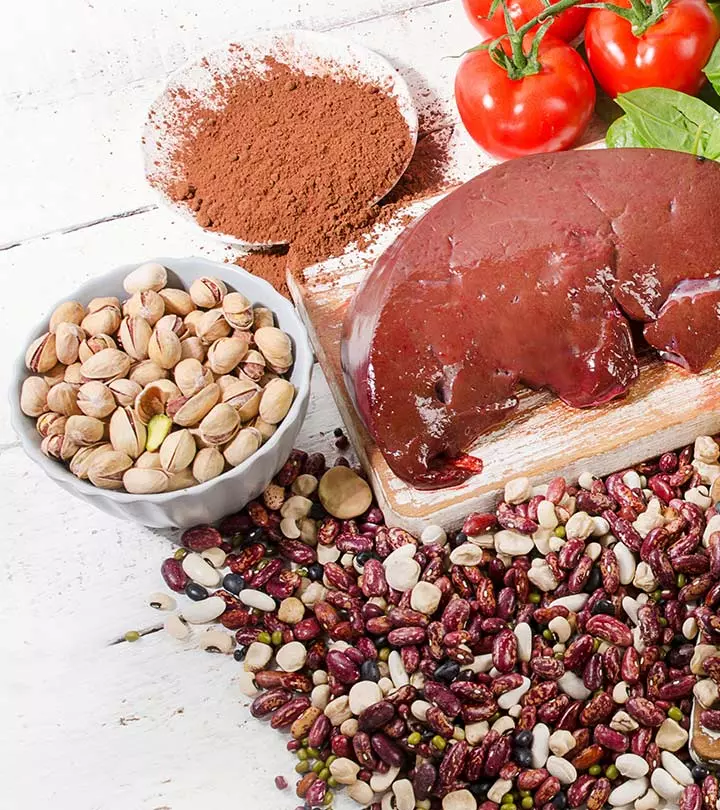
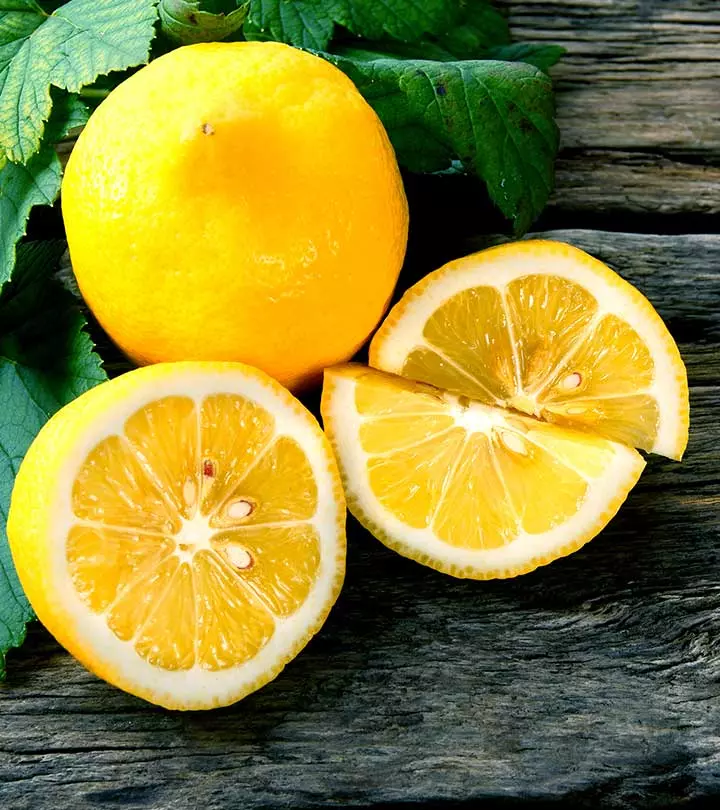
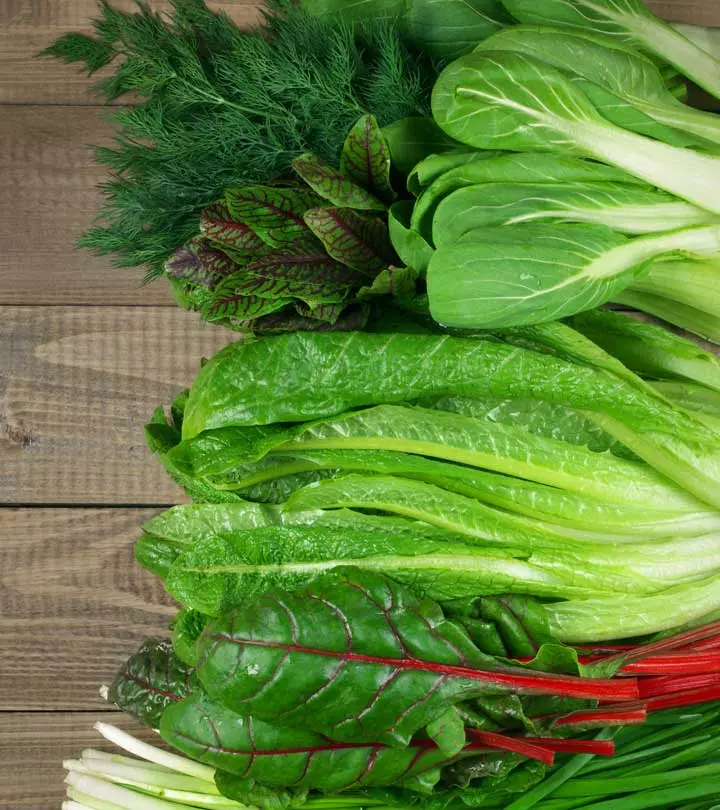








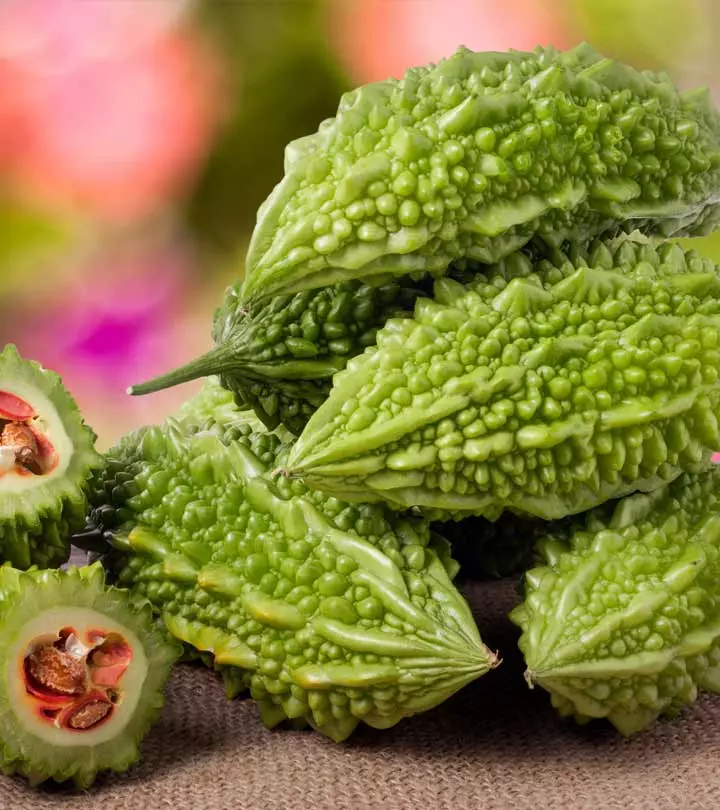
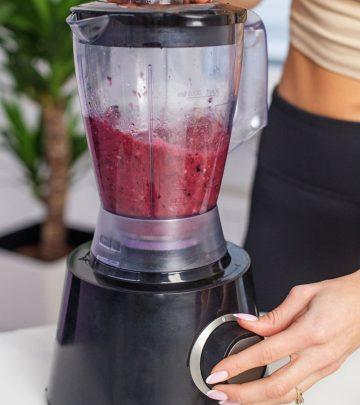
Community Experiences
Join the conversation and become a part of our empowering community! Share your stories, experiences, and insights to connect with other beauty, lifestyle, and health enthusiasts.